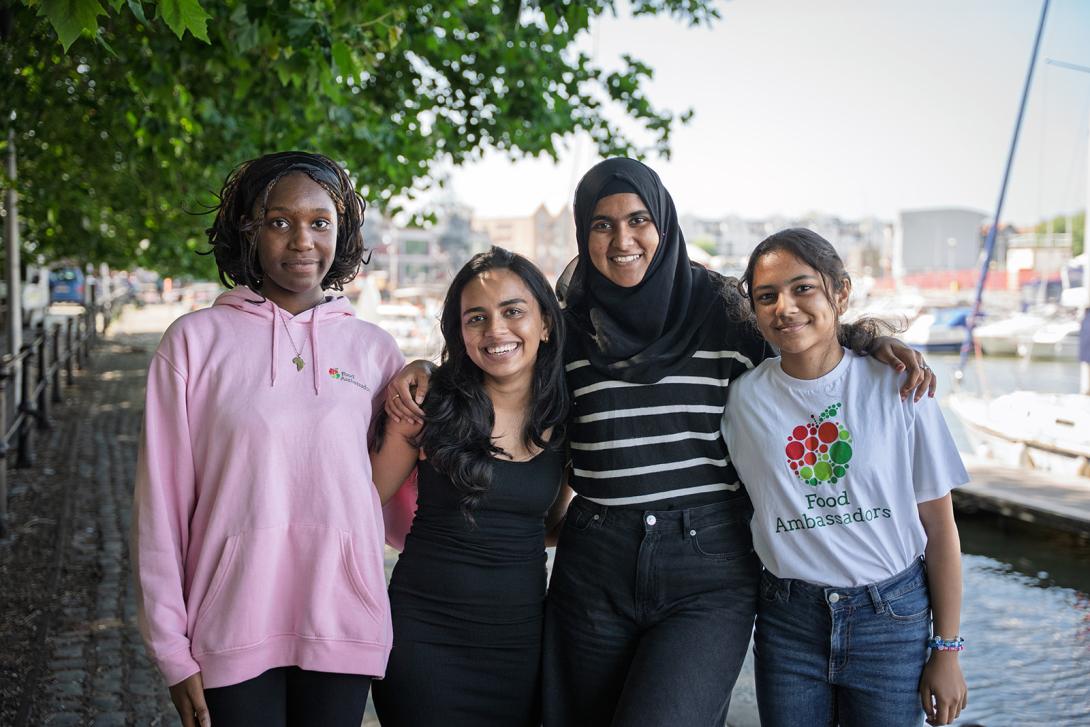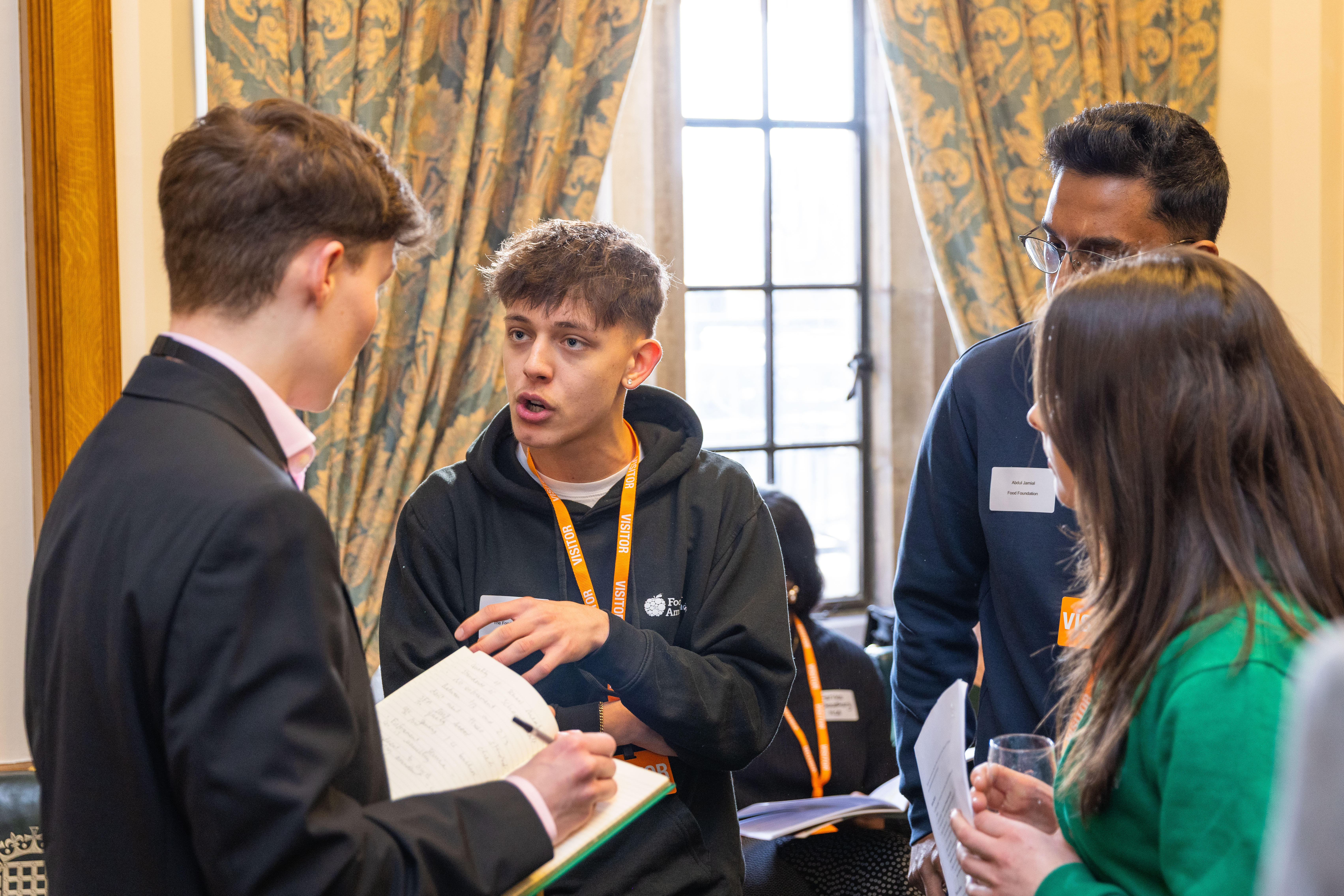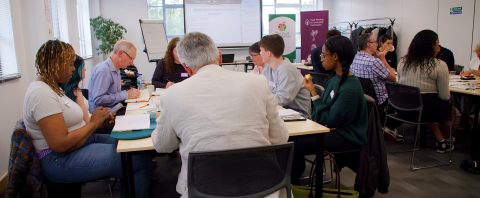12 August 2025
Why we've set up a Food Ambassador Advisory Board

The Food Foundation has established a Food Ambassador Advisory Board (FAAB) to provide strategic guidance grounded in lived experience.
Food Ambassadors play a vital role in raising awareness of food insecurity by sharing their first-hand experiences of limited or uncertain access to enough food for a healthy life.
As experts by experience, they offer valuable insights into the UK’s broken food system and contribute ideas for policy change.

FAAB members bring a range of perspectives across age, background, and location. Their contributions are shaped by direct experience with food insecurity, helping to inform the organisation’s decisions and direction.
The Board supports The Food Foundation by reviewing strategy, exploring new opportunities, and influencing the organisation’s direction.
It also plays a key role in ensuring that the charity’s leadership listens to and learns from lived experience, creating meaningful ways for citizens to contribute to policy and decision-making.
Food Ambassador Advisory Board

Alex is passionate about making sure every child has access to healthy, nutritious food at school. He speaks from personal experience about the challenges children and families face, particularly those from immigrant backgrounds when trying to access support. As a young person with lived experience, Alex wants to see a food system that supports every child to thrive. He believes no child should have their future determined by what’s on their plate, and is committed to speaking up for fairness, dignity and opportunity for all.

Caroline is a mum to three children and takes part in a lot of our work, bringing warmth, creativity and lived experience to everything she does while managing serious health issues. She also home-schools her youngest child, who has learning difficulties and ASD, and balances this with a wide range of creative passions including baking, crafts and DIY. As a child, she cared for her ill parent and experienced significant food insecurity. Caroline is passionate about creating change, especially for families facing similar challenges.

Grace is committed to improving the nation’s health, especially in communities where low-quality food is common. She speaks from personal experience about the difficulties she and her younger sister face with school meals, including issues around affordability and nutrition. Grace believes that young people have an important role to play in building a fairer food system. She is passionate about addressing the inequalities that exist and making sure every child, no matter their background, has access to healthy and nutritious food.

Penny is a dedicated food activist and community leader. She runs a local community supermarket and is actively involved in grassroots work supporting families who are struggling to get by. Drawing from her own experience of food insecurity, Penny speaks powerfully about the connection between poverty, diet, and long-term health. She believes everyone deserves access to nutritious food and is a passionate voice for change in her community. Penny was awarded a BEM in 2024 for her services to the Byker community.

Rushda has a strong commitment to food justice. As a Free School Meals recipient, she is passionate about ensuring all children have access to nutritious food. She firmly believes that no one is ever too young to make a difference or help build a better future. Rushda actively supports in every way she can, from contributing to campaigns and research, to engaging with media and policymakers. She is committed to creating positive change for her community and beyond. Through her work, Rushda hopes to inspire others to believe in their own power to make a difference, no matter their age.
Announcing the news, Anna Taylor, Executive Director of The Food Foundation, said: "I have been Executive Director with The Food Foundation since it was founded in 2015.
"In that time, the charity has grown considerably. As we have evolved as an organisation, the role of citizens in our work has remained consistent.
"Today, we continue to strive to amplify their voices and diverse experiences of food insecurity to bring light to the realities behind our research and campaigns.
"From our first work with citizens back in 2018 when we launched the Children’s Future Food Inquiry and heard from young people about their first-hand experiences of food insecurity, to the Breadline Voices blogs that shone light on the experiences of citizens during the pandemic, to now: the Food Ambassador programme, which consists of approximately 65 citizens from across the UK with lived experience of food insecurity.
"As a charity, we value a readiness to listen and learn. This is why we have established a Food Ambassador Advisory Board, to ensure that The Food Foundation’s strategic direction is shaped by people with first-hand experience of the issues we aim to tackle.
"The Food Ambassador Advisory Board marks an important step forward for The Food Foundation and demonstrates our understanding of the Food Ambassadors as experts by experience whose invaluable input we are very thankful for."
Parveen Bird, a Food Foundation Trustee and Director at the Big Issue Group, said: "When the Food Ambassadors speak at our external events, they always steal the show. We want to ensure we capture their views and voices internally, as well as externally. This new board will help us to achieve that."
Neil Leitch, a Food Foundation Trustee and CEO of the Early Years Alliance, said: "As a recently appointed trustee, I was greatly moved by the power of our ambassador’s testimonies and lived experiences.
"They bring to life the challenges and consequences of failing to act but equally provide solutions on how things can be improved.
"Each individual brings their own perspective and uniqueness, which gives us the widest possible learning and better informs our planning and decision-making processes – an invaluable source of intelligence."




